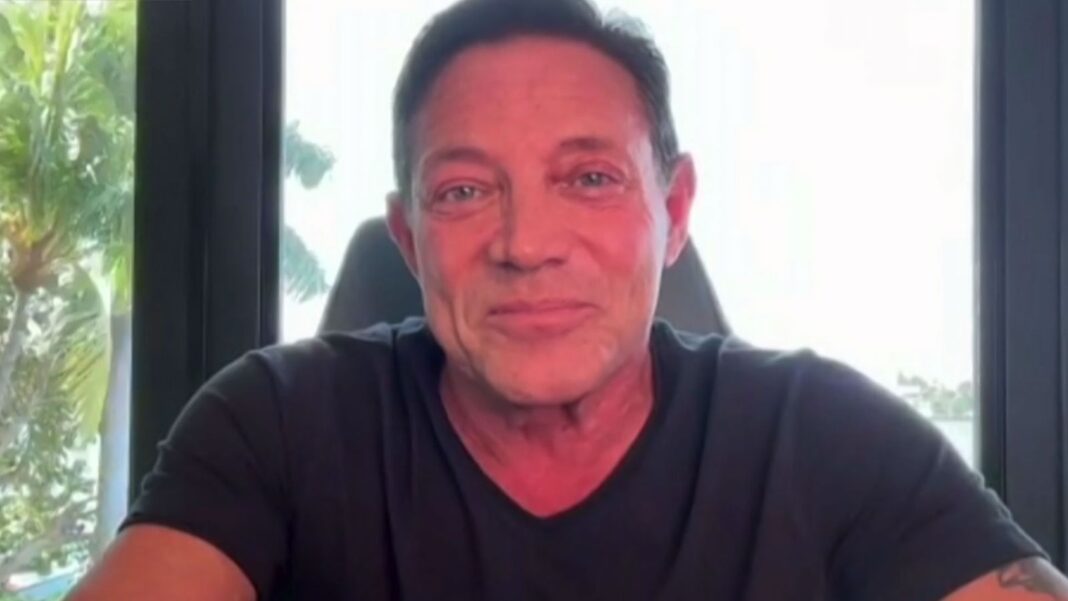Israel and Turkey have been holding technical talks aimed at establishing a deconfliction mechanism for Syria, an Israeli source was cited Wednesday as confirming.
The source told Channel 12 news that “a mechanism will be established, similar to the one built between Israel and Russia.”
The comment followed remarks on Wednesday by Turkish Foreign Minister Hakan Fidan in a live interview on CNN Turk that the two countries have been holding talks on the matter “when needed.”
According to a report by the Ynet news site, a senior Israeli official said that during a Wednesday night security cabinet meeting, Netanyahu told ministers that Israel is not seeking a confrontation with Turkey in Syria, but will not hesitate to act if necessary to defend itself.
The prime minister added that he would request assistance from US President Donald Trump if needed, given Trump’s close relationship with Turkish leader Recep Tayyip Erdogan.
Escalating strikes
Fidan’s remarks came a week after Israel stepped up airstrikes on Syria, declaring the attacks a warning to the new government in Damascus as it accused Turkey of trying to turn the country into a Turkish protectorate.
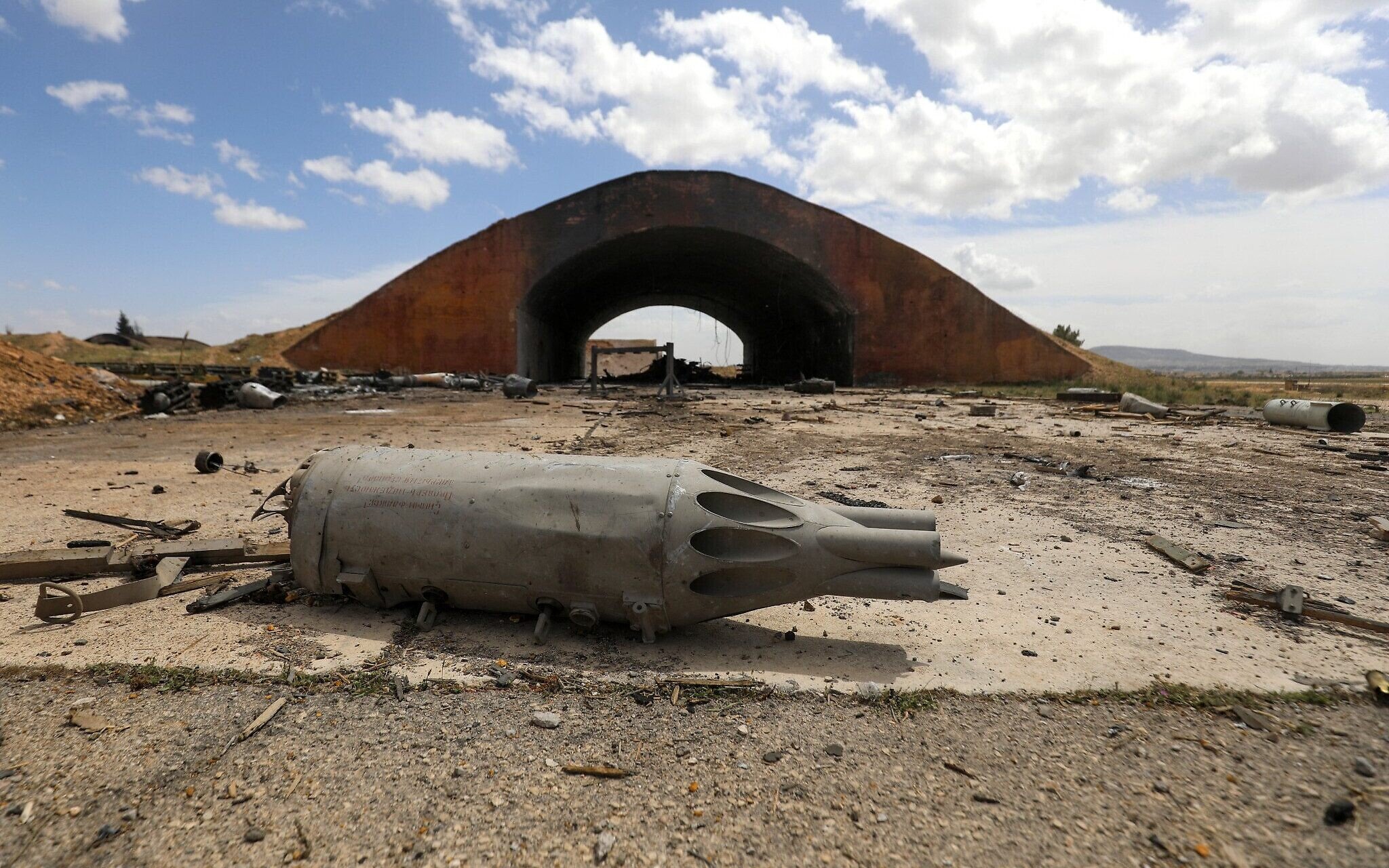
Debris lies on the ground at the scene of an Israeli strike in a military facility in Syria’s southern Hama governorate, on April 3, 2025. (Abdulaziz Ketaz/AFP)
Israel has carried out a campaign to destroy Syrian military capabilities so that they cannot threaten Israel, and fears that if Turkey establishes a military presence in Syria, it could hamper the Israeli Air Force’s freedom of action in the region.
Turkey is a key backer of the Islamist-led coalition that toppled Bashar al-Assad in Syria after almost 14 years of civil war. Israel is wary of the Islamist presence on its border and has lobbied the United States to curb Turkey’s growing influence in the country.
On Saturday, Reuters reported that Turkey scoped out at least three airbases in Syria where it could deploy forces as part of a planned joint defense pact that could see new Turkish bases in central Syria and use of Syria’s airspace, before Israel hit the sites with airstrikes.
The Israeli strikes on the three sites Turkey was assessing, including a heavy barrage last Wednesday night, came despite Ankara’s efforts to reassure Washington that a deeper military presence in Syria was not intended to threaten Israel, the report said, citing four people familiar with the matter.
“While we are conducting certain operations in Syria, there needs to be a deconfliction mechanism with Israel, which flies aircraft in that region, similar to mechanisms we have with the US and Russia,” Fidan said on Wednesday.
“There are technical contacts to prevent combat elements from misunderstanding each other,” Fidan continued, adding that technical teams are communicating “when needed.”
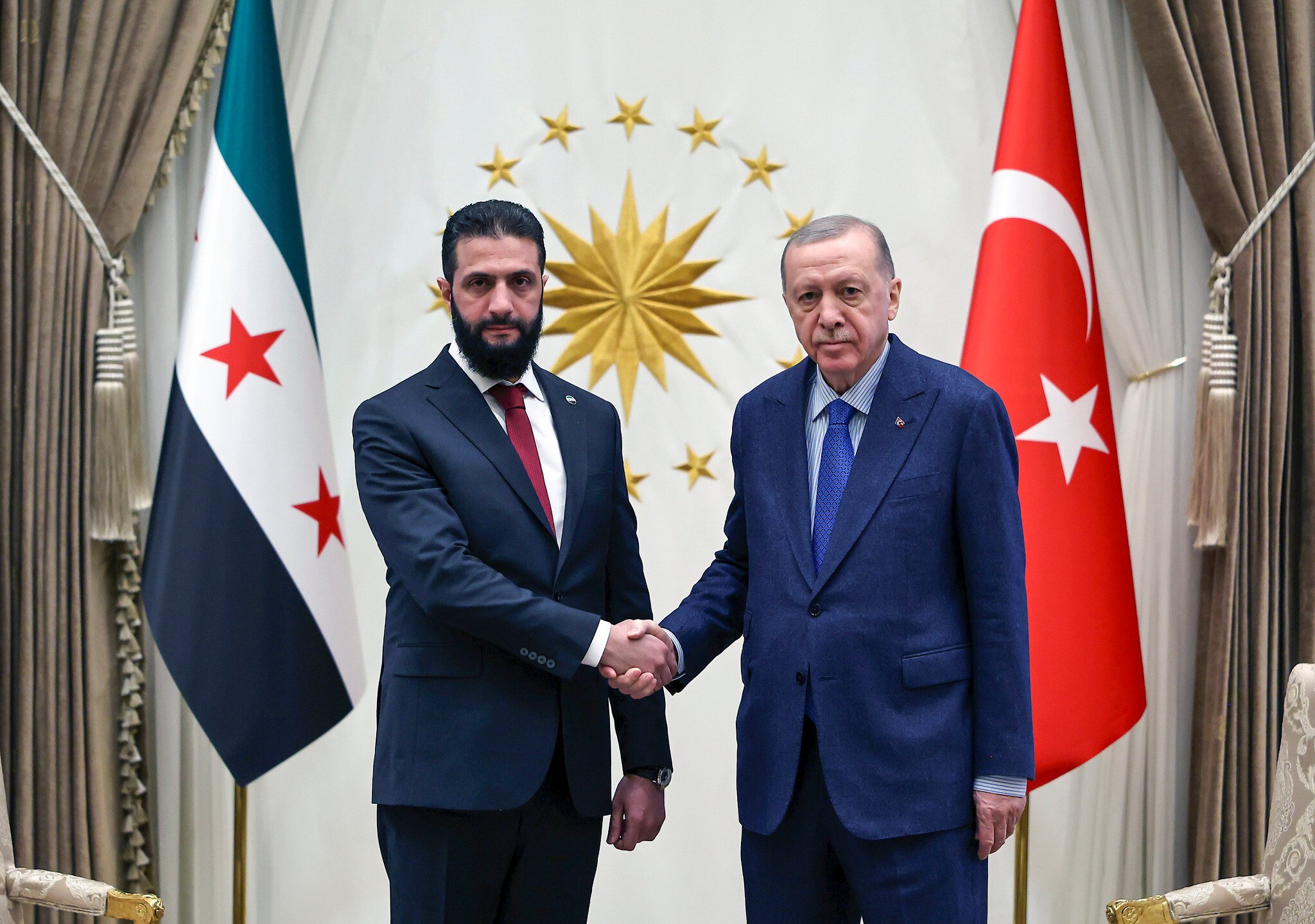
Turkish President Recep Tayyip Erdogan, right, shakes hands with Syria’s interim President Ahmed al-Sharaa during their meeting at the presidential palace, in Ankara, Turkey, February 4, 2025. (Turkish Presidency via AP)
The Turkish foreign minister said these talks are solely for deconfliction in Syria and do not aim at normalizing relations.
Turkey’s foreign ministry last week called Israel “the greatest threat to regional security.”
Fidan told Reuters last Friday that “We don’t want to see any confrontation with Israel in Syria because Syria belongs to Syrians,” but that repeated Israeli strikes there are eroding the new government’s ability to deter threats from enemies, including the Islamic State terror group.
Azerbaijan, US offer hands
At the annual ADA University Policy Forum in Baku earlier Wednesday, Azerbaijani President Ilham Aliyev referenced his country’s past role in facilitating Israeli-Turkish ties, noting that “both countries are close friends of Azerbaijan.”
“We hope that the process will lead to normalization,” Aliyev said of the new development, adding: “I think, despite the legitimate concerns and despite the quite a high level of mistrust, there can still be found grounds for normalization and areas of mutual interest. So the process, to my mind, should not stop, and Azerbaijan is doing everything in its position to facilitate the process.”
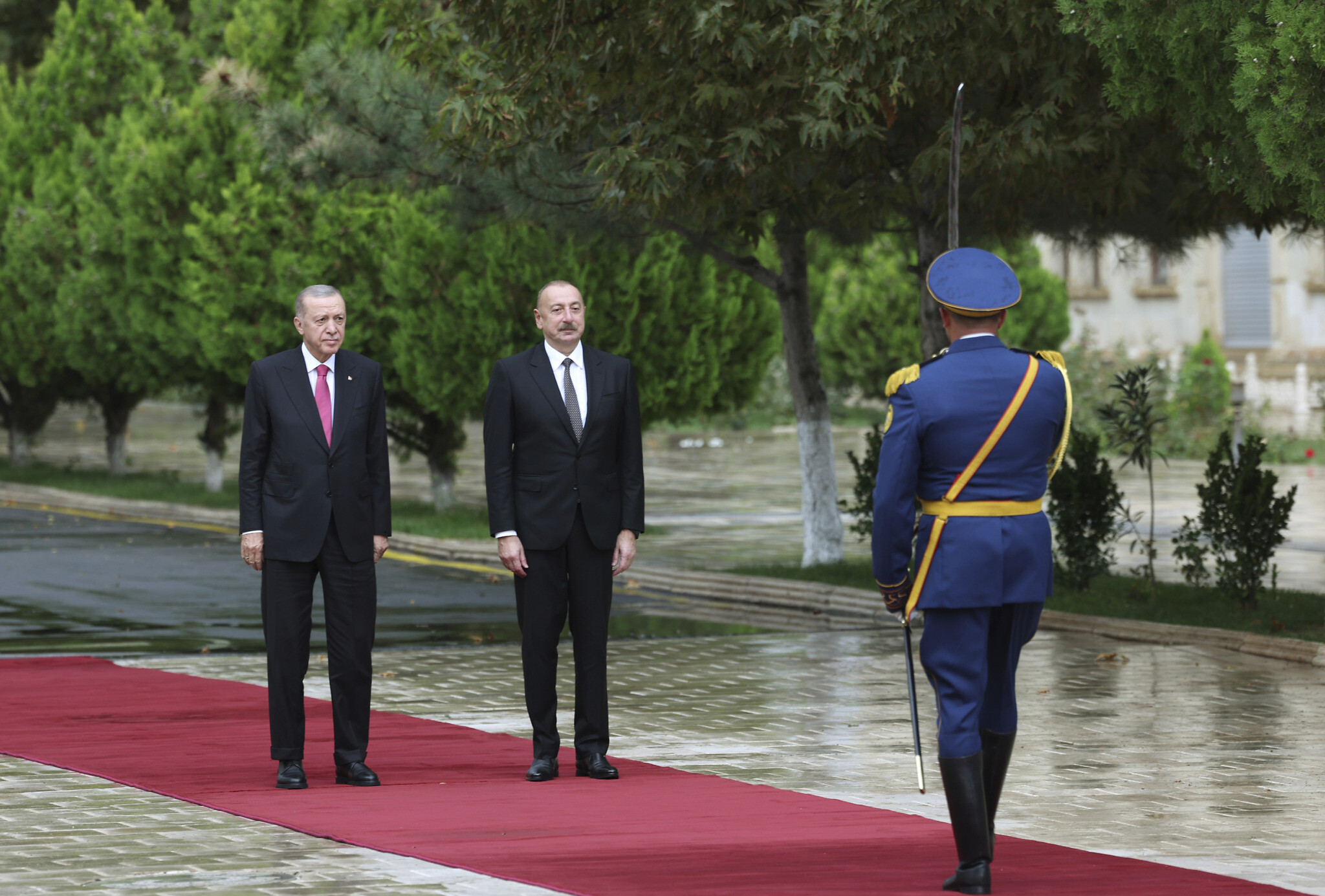
Azerbaijan’s President Ilham Aliyev, right, and Turkey’s President Recep Tayyip Erdogan review an honor guard during a welcome ceremony in Nakhchivan, Azerbaijan, September 25, 2023. (Turkish Presidency via AP)
Trump on Monday touted himself as a mediator between Israel and Turkey in their struggle over politically fragile Syria.
The US president, speaking alongside Netanyahu during the premier’s White House visit, said negotiations could be helped by the president’s “great relations” with Erdogan, whom he said he likes very much and called “very smart.”
Trump appeared to acknowledge Turkey’s dominance in Syria, saying he told Erdogan he had “taken it over through surrogates.”
“I told the [Israeli] prime minister, I said, ‘Bibi, if you have a problem with Turkey, I really think I’m going to be able to work it out,’” Trump told reporters, using Netanyahu’s nickname.
“You know, I have a very, very good relationship with Turkey and with their leader, and I think we’ll be able to work it out,” he added. “As long as you are reasonable, you have to be reasonable.”
Netanyahu voiced Israeli concerns over Turkish influence in Syria while touting the US president as a mediator.
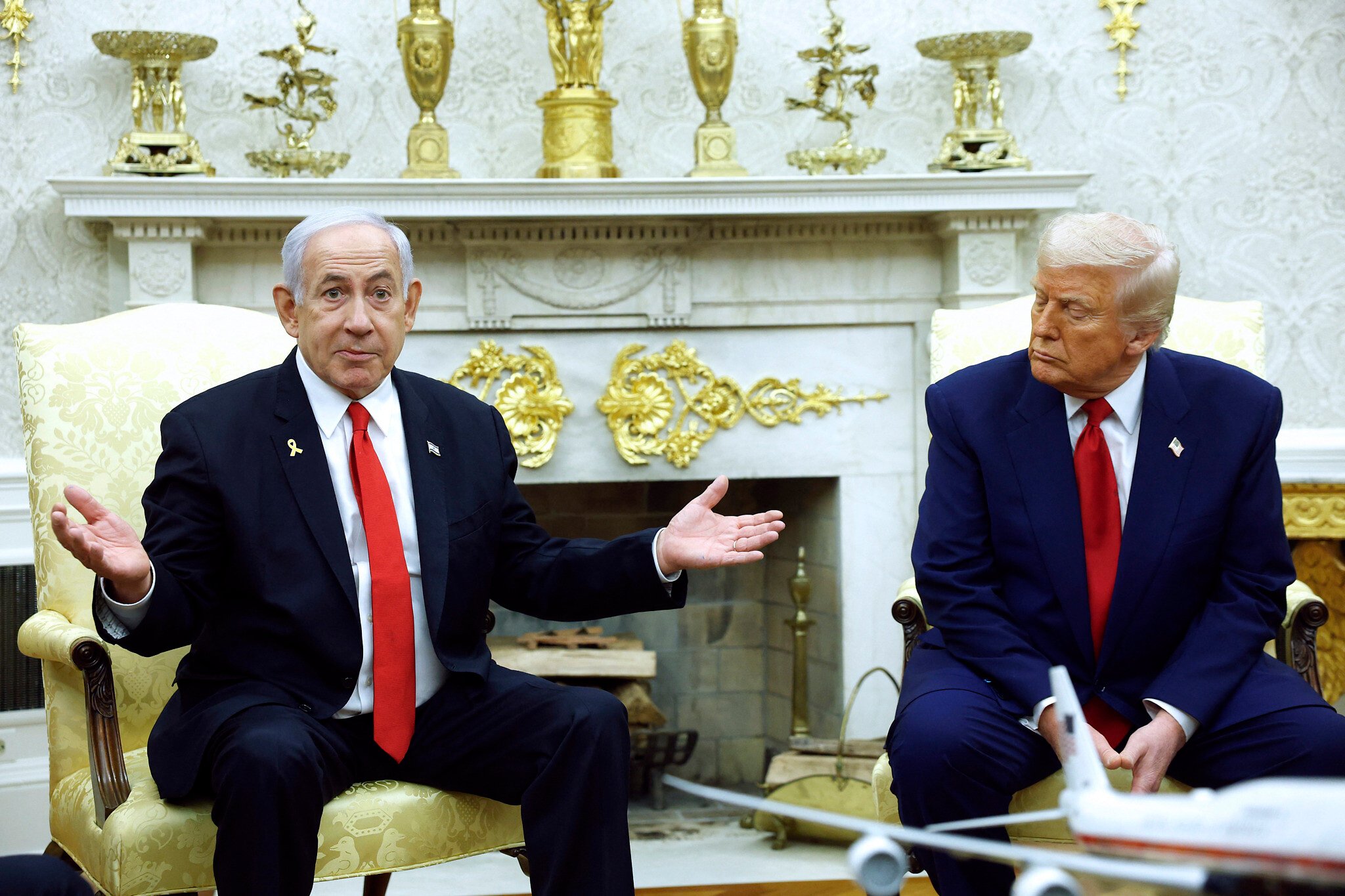
Prime Minister Benjamin Netanyahu, left, speaks alongside US President Donald Trump during a meeting in the Oval Office of the White House in Washington, DC, on April 7, 2025. (Kevin Dietsch / Getty Images via AFP)
“We’ve had neighborly relations with Turkey that have deteriorated, and we don’t want to see Syria being used by anyone, including Turkey, as a base for attack in Israel,” he said.
“We discussed how we can avoid this conflict in a variety of ways, and I think we can’t have a better interlocutor than the president of the United States for this purpose,” Netanyahu added.
Hamas ties and harsh rhetoric
Erdogan is an avowed supporter of Hamas and one of the leading critics of Israel on the world stage, and his country has frequently praised the Iran-backed Palestinian terror group’s October 7, 2023, attack which started the ongoing war, when thousands of terrorists invaded southern Israel from the Gaza Strip, killing some 1,200 people and taking 251 hostages.
Erdogan was quoted in a speech two weeks ago calling on Allah to “destroy Zionist Israel.”
Less than a month after the October 7 attack, Erdogan, whose government had only recently restored full diplomatic ties with Israel, massively stepped up his criticism of the country. In late October 2023, he asserted that Hamas was not a terrorist organization but a liberation group of “mujahideen” fighting for its lands and people, and said in an address to a mass pro-Palestinian rally in Istanbul that his country was making preparations to proclaim Israel a “war criminal” for its actions in Gaza.
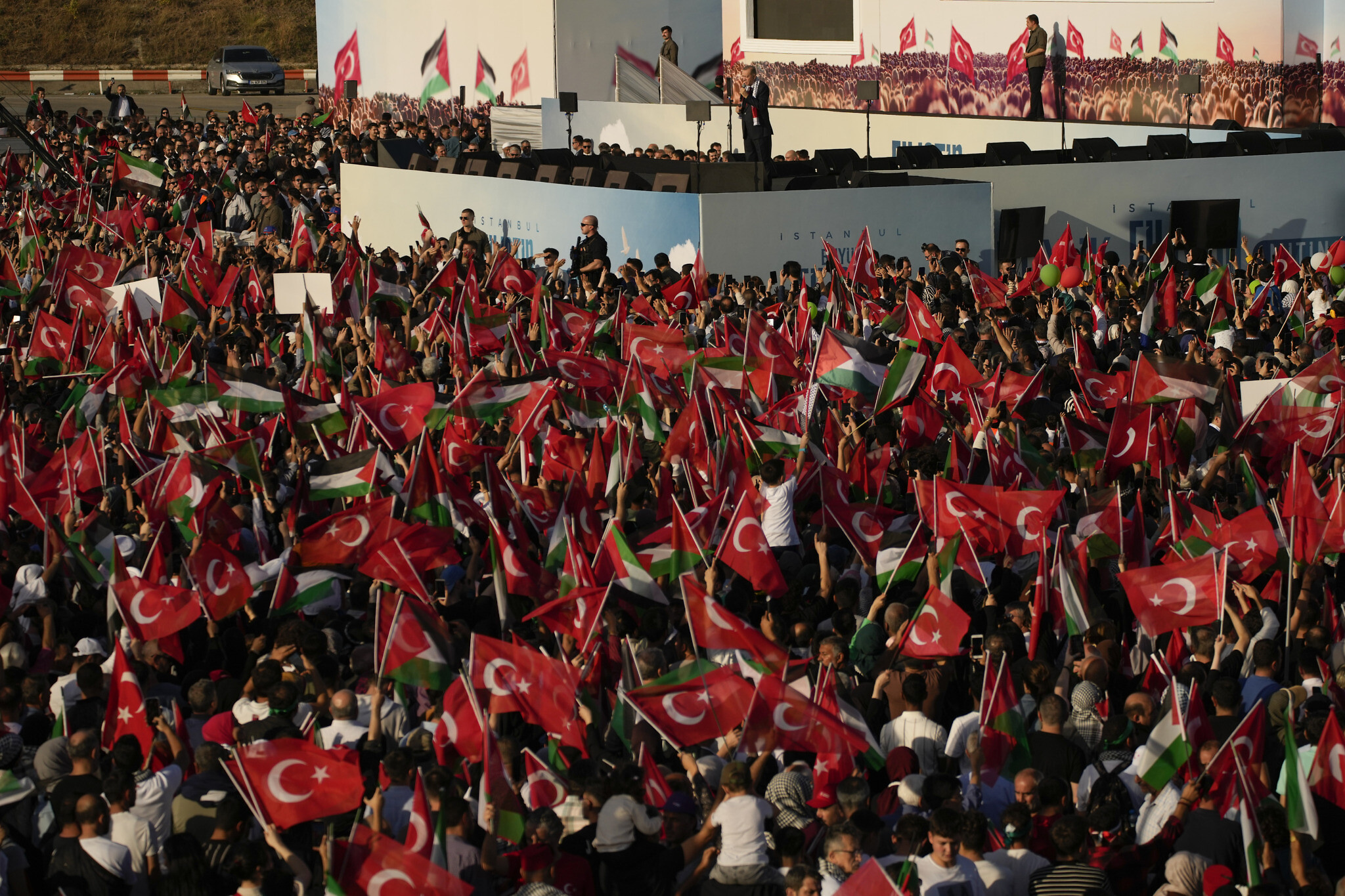
Turkish President Recep Tayyip Erdogan, speaks to attendees during a rally to show their solidarity with Palestinians, in Istanbul, Turkey, October 28, 2023. (AP Photo/Emrah Gurel)
Israel announced it would pull its diplomats out of Turkey in response to Erdogan’s inflammatory statements.
Turkey hosts several Hamas officials, and was also expected to absorb more of them when Qatar expelled the terror group’s leadership in November 2024, reportedly under pressure from the US.
In May 2024, Turkey halted all bilateral trade with Israel, aiming to pressure Israel into allowing unhindered aid flow into Gaza.
Past normalization efforts
In September 2023, less than a month before Hamas’s attack would set off the current conflict, Netanyahu and Erdogan discussed the effort to normalize relations with Saudi Arabia during their first-ever known meeting, which took place on the sidelines of the United Nations General Assembly in New York.
The leaders agreed at the time to coordinate mutual visits “in the near future,” according to Netanyahu’s office.
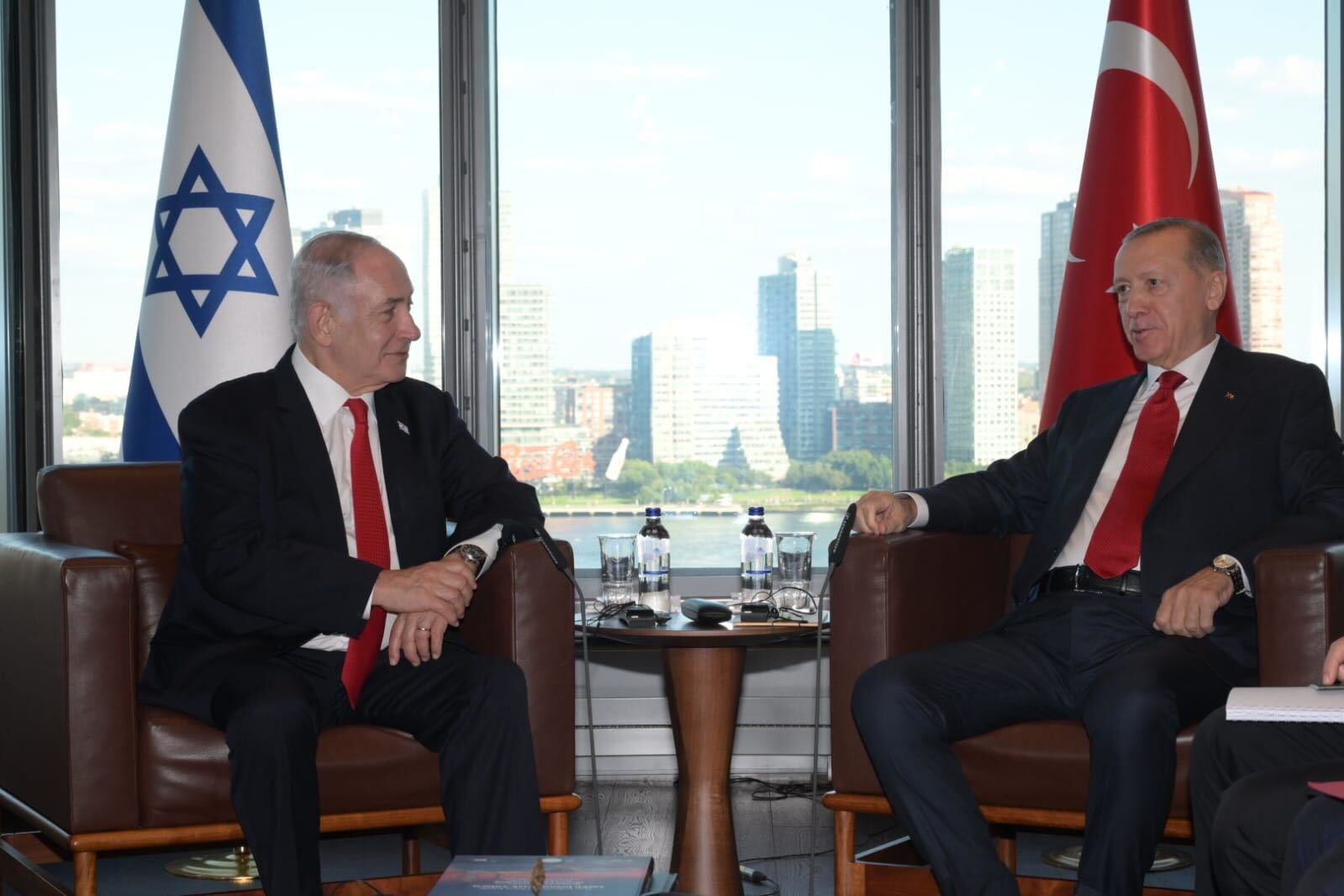
Prime Minister Benjamin Netanyahu meets Turkey’s President Recep Tayyip Erdogan on the sidelines of the UN General Assembly in New York on September 19, 2023. (Avi Ohayon/GPO)
It came amid a warming of ties between Israel and Turkey after years of animosity between the two countries’ leaders. President Isaac Herzog was hosted by Erdogan in March 2022 in Ankara — the first high-level Israeli visit since 2008.
Israel was a long-time regional ally of Turkey before Erdogan came to power, but ties imploded after a 2010 Israeli commando raid on the Gaza-bound Mavi Marmara ship, part of a blockade-busting flotilla, that left dead 10 Turkish activists who attacked IDF soldiers aboard the ship.
Netanyahu and Erdogan repeatedly aimed brickbats at each other in the ensuing years. In July 2014, Erdogan accused the Jewish state of “keeping Hitler’s spirit alive” during a war with Gaza.
Facing hardening diplomatic isolation and economic woes, Erdogan began to publicly display an openness toward rapprochement in December 2020.
In August 2022, Israel and Turkey announced a full renewal of diplomatic ties, a move that Aliyev said on Wednesday Azerbaijan played a key role in facilitating.
Times of Israel staff contributed to this report.





